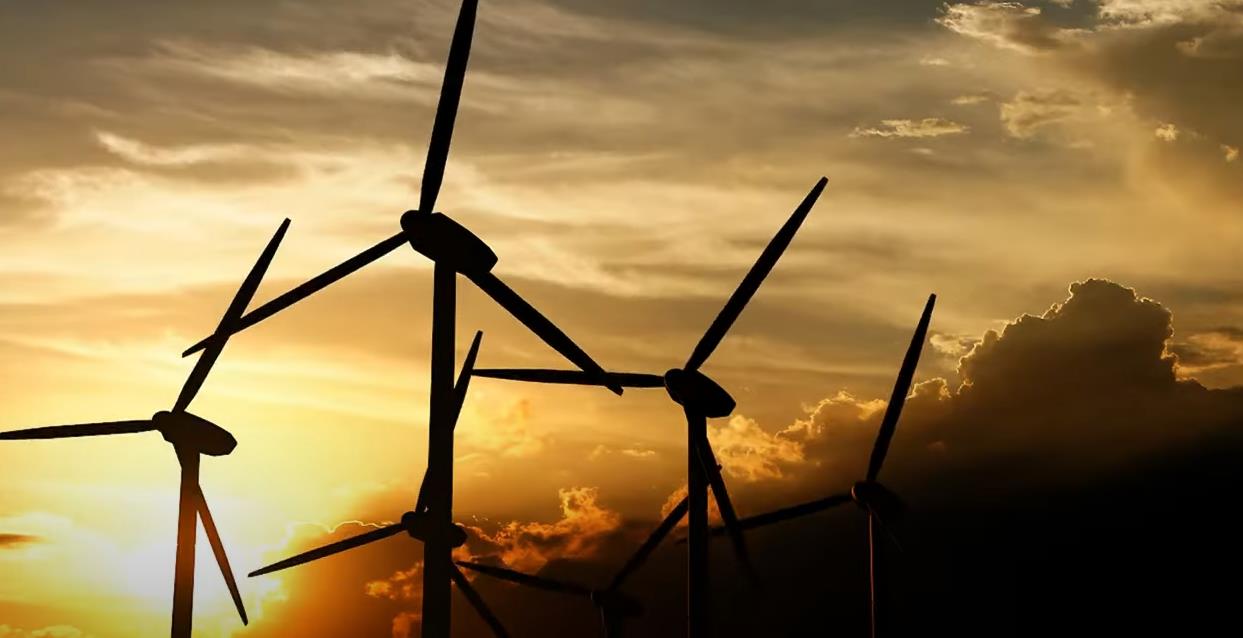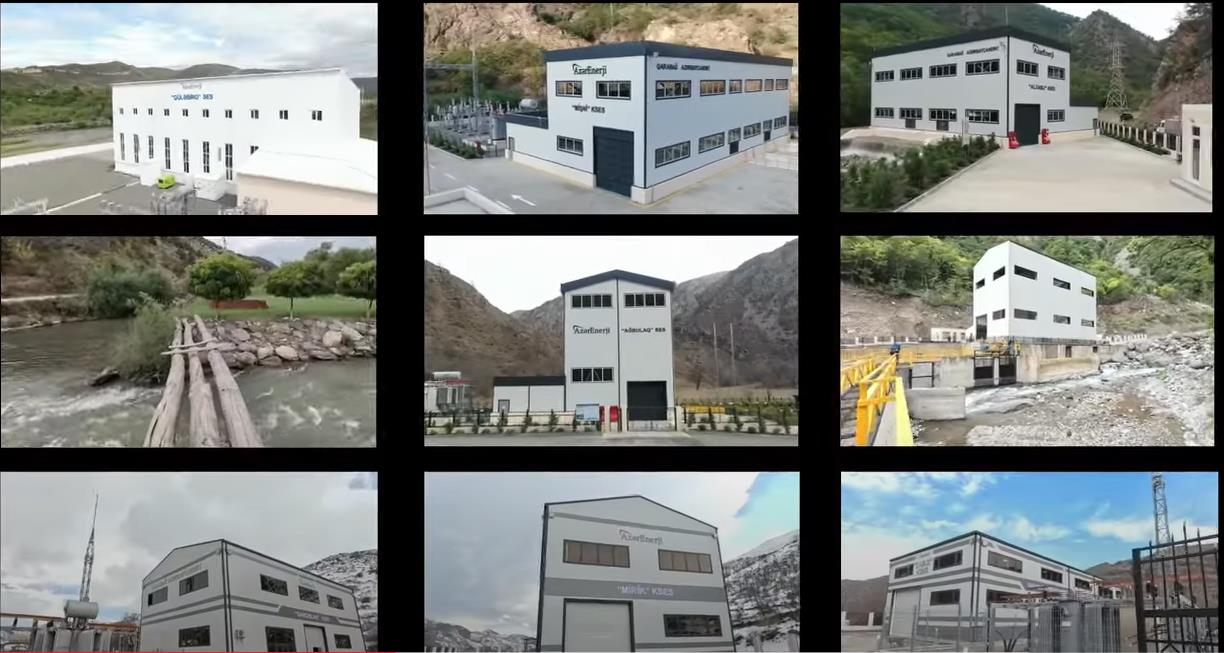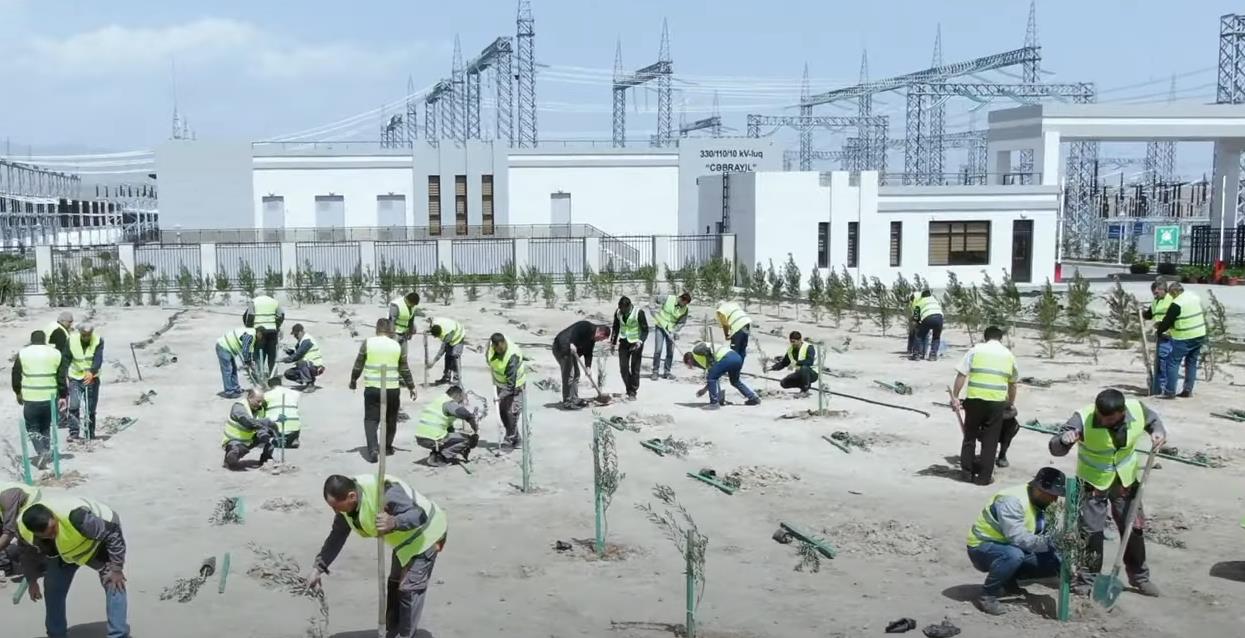
Azerbaijan Gradually Merging With Green And Clean Energy

Abbas Ganbay Read more
It is no secret that Azerbaijan is striving for the development of green energy, realising the importance of environmentally sustainable energy sources for the preservation of natural resources and reducing the negative impact on the environment. One of the key strategies in this direction is the construction of hydroelectric and power plants, which not only provide energy to the country but also minimise the negative impact on nature.
Hydropower plays a paramount role in the development of green energy in Azerbaijan. Thanks to its geographical location and availability of water resources, the country has significant potential for the construction of hydropower plants. Many projects, such as Gorgudash and Shamkhal, have already been realised, while others are in the planning and construction phases. These plants not only provide Azerbaijan with its own energy but also contribute to the reduction of greenhouse gas emissions.
Moreover, Azerbaijan is actively introducing solar and wind energy. In recent years, the country has implemented a number of projects to build solar and wind farms that complement the energy system and contribute to the diversification of energy sources. These innovative projects help to reduce dependence on traditional energy sources and reduce the negative impact on the environment.
Azerbaijan is also actively developing infrastructure for the use of alternative energy sources in domestic and commercial buildings. Programs to encourage the installation of solar panels and other energy-saving technologies help citizens and businesses switch to cleaner forms of energy.
Thus, the development of green energy in Azerbaijan reflects the country's commitment to sustainable and environmentally responsible development. These efforts contribute to reducing greenhouse gas emissions, reducing dependence on fossil resources, and ensuring the country's energy security.
Furthermore, Azerbaijan is actively investing in the research and development of new technologies in the field of green energy. This includes exploring the potential of geothermal energy, biomass utilisation, and other innovative approaches. The development of such technologies helps the country further reduce its carbon footprint and makes it more competitive in the global energy market.
Education and information campaigns are also important aspects of the green energy development strategy in Azerbaijan. Increasing awareness of energy savings, energy efficiency, and the possibilities of alternative energy sources contributes to the formation of an environmentally aware society and stimulates innovation in this area.
Azerbaijan actively participates in international green energy initiatives such as the Paris Agreement and the UN Sustainable Development Goals. This emphasises the country's commitment to cooperate in addressing global environmental challenges and achieving sustainable development.
Thus, Azerbaijan's increased efforts in green energy development reflect the country's commitment to a sustainable, clean, and cost-effective energy sector. These measures not only contribute to reducing environmental pollution but also create new opportunities for economic growth, innovation, and improved quality of life for the citizens of Azerbaijan and beyond.
As a reminder, several significant green energy projects have been implemented in Azerbaijan, which confirms the country's commitment to sustainable development and environmental responsibility. Some of these projects include:
1. Gorgudash Hydroelectric Power Plant : Located on the Gorgudash River in a mountainous area, this hydroelectric power plant is one of the largest projects in this field in the country. It provides a significant amount of energy for Azerbaijan and contributes to the reduction of greenhouse gas emissions.
2. Shamkhal Hydropower Plant : Located in a mountainous area on the Shamkhal River, this plant also plays an important role in providing energy for the country. Its commissioning helps diversify energy sources and reduce dependence on fossil resources.
3. Solar Farms : As part of the development of solar energy, several solar farm projects have been implemented in Azerbaijan. They include the installation of solar panels on large plots of land and on the roofs of buildings, which allows the utilisation of solar energy for electricity generation.
4. Wind farms : Wind energy is also being developed in Azerbaijan. Several wind farms have been built in the country, adding to the energy mix and helping to reduce carbon emissions.
These projects represent important steps towards sustainable development in Azerbaijan and allow the country to actively participate in the global efforts to combat climate change and transition to clean energy sources.
In addition to the projects listed above, other green energy initiatives have also been implemented in Azerbaijan:
5. Small Hydroelectric Power Plants (SHPPs): In addition to large hydropower plants, the small hydropower sector is actively developing in the country. These projects, often built on small rivers or streams, promote decentralisation of energy production and provide energy independence for remote areas.
6. Modernization of existing energy efficient systems : As part of efforts to reduce energy consumption and improve energy efficiency, Azerbaijan is modernising and optimising existing energy systems and buildings. This includes the installation of modern equipment and control systems to reduce energy consumption and improve energy utilisation.
7. Investments in research and development : The state is actively investing in research and development in the field of green energy. This includes the search for new technologies, materials, and production methods to improve the efficiency and sustainability of green energy systems.
These and other projects and initiatives demonstrate Azerbaijan's serious commitment to green energy development and sustainable use of natural resources. This approach not only contributes to reducing environmental pollution and combating climate change, but also creates new opportunities for the country's economic growth and social development.
Moreover, Azerbaijan has launched 4 HPPs commissioned in Lachin, where 77 mln kWh of green energy have already been produced. Due to the production of 77 mln kWh of green energy, Azerbaijan managed to save 18 mln m3 of gas and millions of AZN, as well as prevent the emission of 32 thousand tons of carbon dioxide into the atmosphere. Measures necessary for the protection of ecosystems . This has been implemented with the use of European-made eco-turbines installed at the stations.
Moreover, five more hydropower plants with a total capacity of more than 40 MW are currently under construction in Lachin district. These construction works are being carried out at Aghbulag HPP with a capacity of 14.25 MW, which is almost at the stage of completion.
Completed construction works - at HPP " Agbulag-2 " with a capacity of 14.7 MW, " Garigishlak " with a capacity of 4 MW, " Mirik " with a capacity of 3.5 MW, and " Zabukh " with a capacity of 2.8 MW, currently being carried out as installation and adjustment works. These 5 hydropower plants are scheduled to be commissioned as part of the Year of Solidarity for a 2024-Green World.
Accelerating the transition to alternative and renewable energy sources, reducing the amount of carbon dioxide emissions into the atmosphere, and other progressive principles create new opportunities for the country's economic growth and social development.
Declaring 2024 as the Year of Solidarity for a Green World will prioritise such a prestigious event as COP29 in Azerbaijan. The scope of application of "green energy" is rapidly expanding. In particular, in accordance with the instruction of the head of the country to transform liberated territories into green energy zones.
In accordance with the strategy of " green energy " in Lachin district, hydroelectric power plants have been created and are being created in 9 places. Thus, up to today in Lachin district, the 8.25 MW "Mishni", 8 MW "Gulabird," 6 MW "Alkhasli" HPPs have been reconstructed and put into operation, and the 4 MW "Sus" HPP has been restored.
Legal Disclaimer:
MENAFN provides the
information “as is” without warranty of any kind. We do not accept
any responsibility or liability for the accuracy, content, images,
videos, licenses, completeness, legality, or reliability of the information
contained in this article. If you have any complaints or copyright
issues related to this article, kindly contact the provider above.



















Comments
No comment